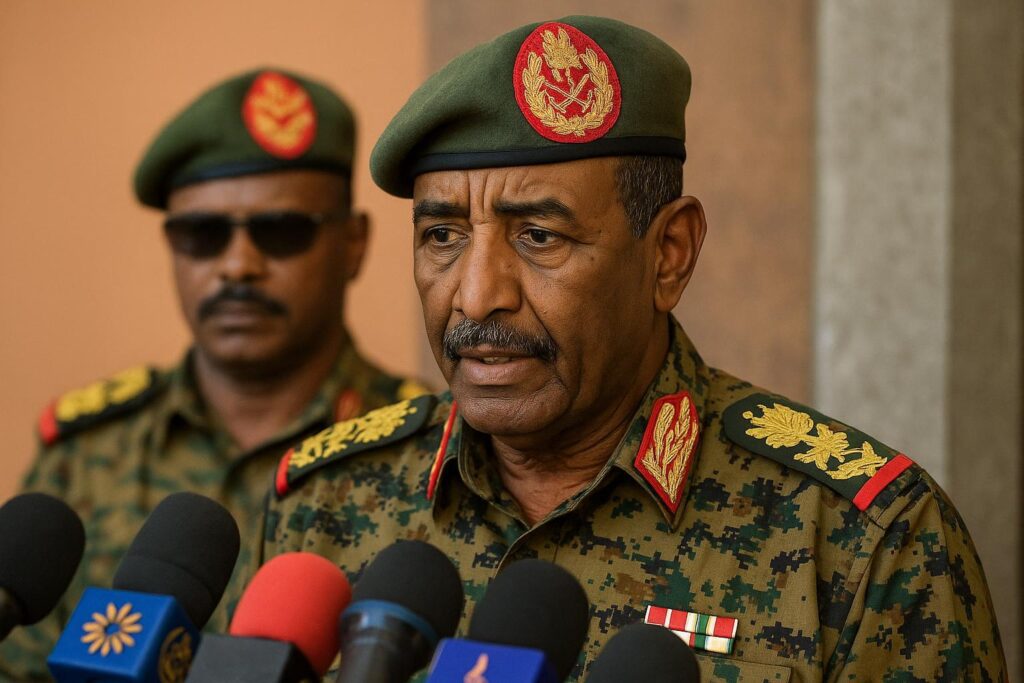Khartoum Intensifies Lobbying in Washington
Sudan’s transitional authorities have intensified their lobbying campaign in Washington after submitting 21 flash drives they say track clandestine arms flows to the Rapid Support Forces, hoping the United States will curb alleged Emirati assistance.
During public remarks on 12 November, Secretary of State Marco Rubio called Sudan’s humanitarian emergency ‘horrific’ and urged an immediate halt to weapons deliveries, yet he avoided naming the United Arab Emirates, a long-standing American security partner.
U.S. Rhetoric and Political Calculations
Khartoum interprets that omission as a political calculation. Analysts in the capital argue that bipartisan concern on Capitol Hill cannot translate into decisive action without confronting Gulf partnerships that underpin American energy and counter-terrorism strategies.
Anatomy of the 21-Drive Evidence Dossier
The USB dossier, presented in the presence of U.S. Special Envoy Masaad Boulos and Emirati Minister Sheikh Shakhbout bin Nahyan, allegedly contains flight logs, financial transfers and intercepted field messages linking Gulf logistics hubs to the RSF’s recent battlefield gains.
Sudanese officials say the Emirati delegate left the meeting in silence, which they read as tacit acknowledgment. They now press the White House for economic and diplomatic deterrents they believe could alter the conflict’s cost-benefit calculus.
Emirati Narrative Faces Scrutiny
Abu Dhabi’s public line frames its role in Sudan as purely humanitarian. Nonetheless, regional observers note that the RSF’s surge in resource-rich Kordofan coincided with reported upticks in drone and ammunition shipments traced to Gulf warehouses.
The pattern echoes past scrutiny of Emirati involvement in Libya and Yemen, prompting questions about whether a growing dossier will erode the federation’s carefully curated soft-power narrative ahead of upcoming climate showcases.
Mediation Track and Transition Roadmap
Meanwhile, mediation efforts remain fragile. The earlier U.S.–Saudi talks in Jeddah collapsed after cease-fire breaches, and General Abdel Fattah al-Burhan insists any fresh format must endorse his February transition roadmap and demand full RSF withdrawal from Sudanese cities.
American diplomats float targeted sanctions, yet Khartoum contends that ambiguity over the UAE’s liability weakens external leverage. Officials describe Washington’s stance on Gulf partners as the litmus test for renewed engagement.
Battlefield Realities in El-Fasher
On the ground, combat has narrowed around El-Fasher, the last major Darfuri city under army control. Military sources claim reinforcements from Omdurman and Port-Sudan aim to exhaust the paramilitaries through urban attrition.
The February roadmap promises inclusive dialogue, a civilian cabinet and internationally supervised elections, but its timeline remains fluid while RSF units occupy suburban Khartoum and oil transit corridors.
Broader Regional Repercussions
The conflict also threatens regional arteries. Prolonged fighting could trigger refugee flows toward Chad and South Sudan and complicate Nile Basin infrastructure negotiations, adding urgency to external actors’ reputational calculations.


